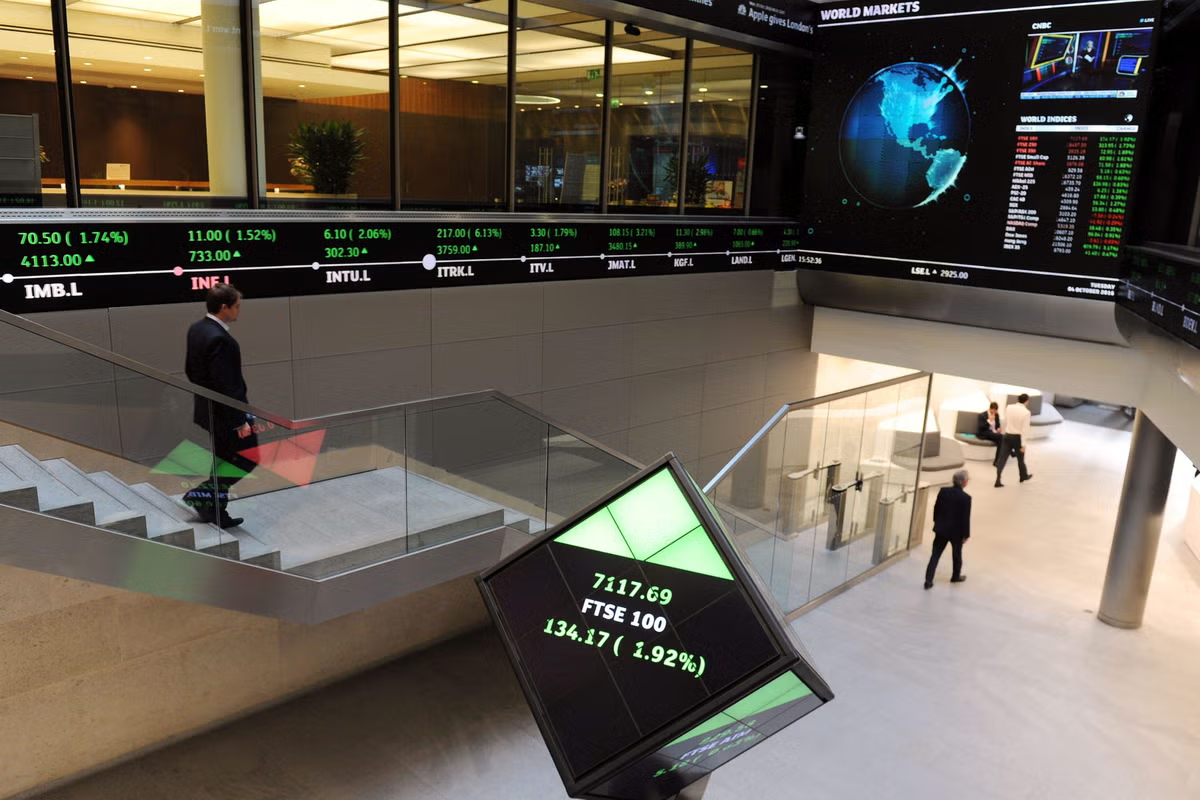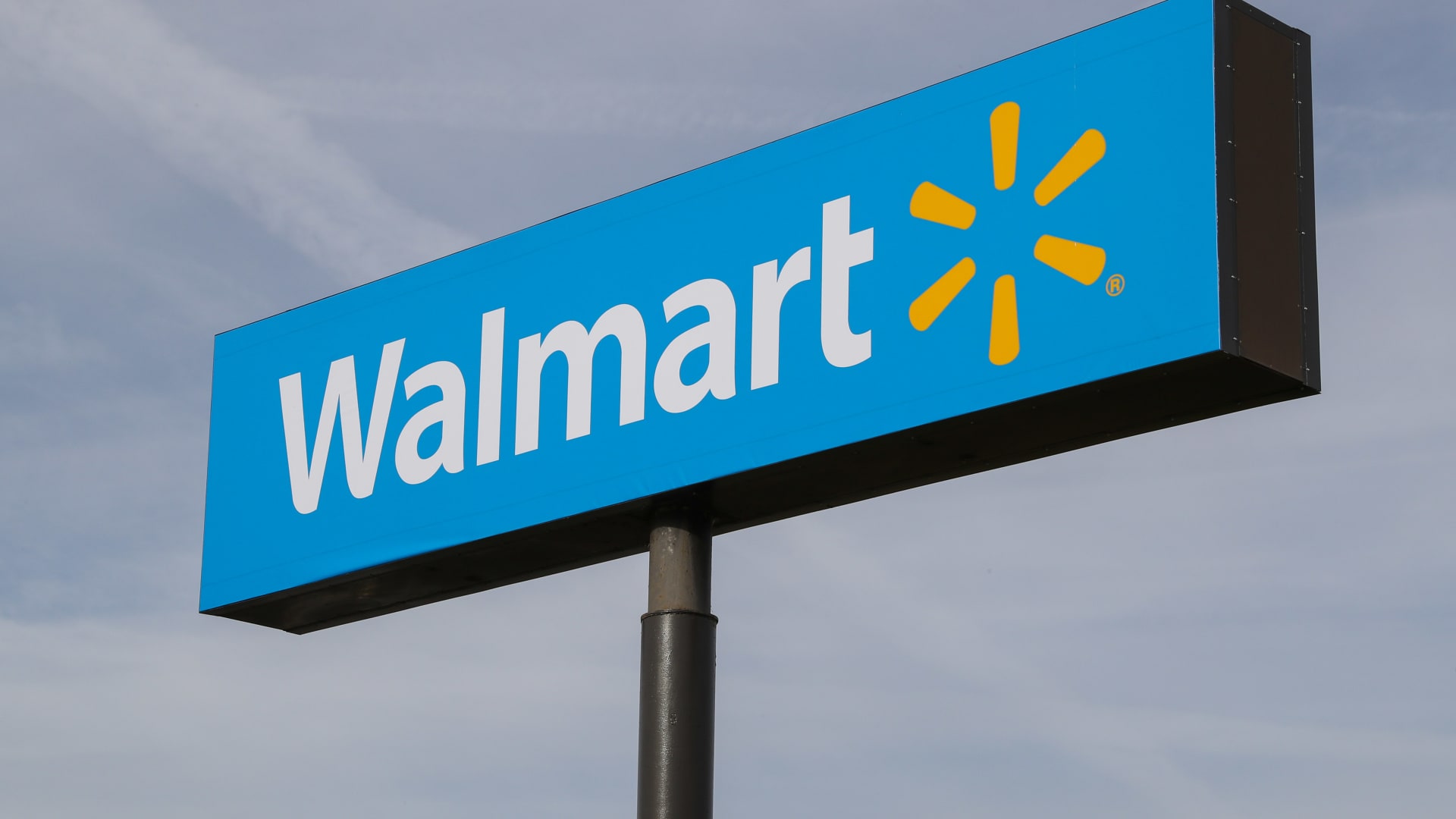The FTSE 100 closed sharply on Friday, although well above initial lows, as investors weighed Thursday's sharp falls on Wall Street sparked by fears over US regional banks.
The FTSE 100 index closed down 81.52 points, or 0.9%, to 9,354.57. It had previously traded as low as 9,276.91.
The FTSE 250 closed 208.40 points lower, or 1.0%, at 21,782.96, while the AIM All-Share lost 17.24 points, or 2.2%, to 772.65.
For the week, the FTSE 100 was down 0.8%, the FTSE 250 was down 0.1% and the AIM-All Share was down 1.7%.
Wall Street plunged Thursday and regional bank stocks took a hit after Zions Bancorp and Western Alliance said they had been victims of fraud in loans to funds that invest in distressed commercial mortgages.
Zions Bancorp said it would take a $50m (£37m) charge related to a loan issued by its California Bank & Trust division, while Western Alliance said it had launched legal proceedings over a bad loan.
“While everyone has been watching the technology sector for signs of a bubble, it is the banking sector that is the root cause of a minor sell-off in the market today,” said Russ Mold, chief investment officer at AJ Bell.
Mold noted that “areas” of the U.S. banking sector, including regional banks, have raised market concerns.
“This includes Zions reporting an unexpected loss on two loans and Western Alliance alleging a borrower committed fraud,” he added.
But he said the pullback by UK-listed banks will be “driven by sentiment”.
“Investors have become spooked and have chosen to trim positions in the sector, possibly choosing to have less exposure in case a crisis is brewing. There is no evidence of problems with the major banking names listed in London, but investors often have a knee-jerk reaction when problems appear anywhere in the sector,” he added.
Barclays lost 5.7%, while Standard Chartered fell 3.5% and HSBC fell 2.5%. Lloyds Banking Group and NatWest ended down 2.4% and 2.9% respectively.
ICG, which has exposure to private credit and asset-backed finance, fell 5.5%.
New York stocks were down at the London close. The Dow Jones Industrial Average was down 0.1%, the S&P 500 was down 0.3%, while the Nasdaq Composite was down 0.6%.
Zions shares rose 2.5%, while Western Alliance strengthened 0.9% at the London stock market close, although both were well below opening highs.
Gold miners also suffered sharp declines in London, as the price of the yellow metal fell from record highs.
Gold was trading at $4,242.28 an ounce on Friday, down from $4,270.73 on Thursday.
The latest volatility saw Fresnillo drop 11% and Endeavor Mining drop 5.5%.
The pound was trading lower at $1.3398 at the close of the London stock market on Friday, down from $1.3429 on Thursday.
The euro stood at $1.1664, down from $1.1671. Against the yen, the dollar was trading at 150.31 yen, down from 150.83 yen.
The 10-year US Treasury yield was trading at 4.00%, down from 4.03% on Thursday. The 30-year US Treasury yield stood at 4.60%, down from 4.62% on Thursday.
In European stocks on Friday, the CAC 40 in Paris closed down 0.2%, while the DAX 40 in Frankfurt fell 1.7%.
Bucking the weaker trend in London, Pearson rose 2.3% as it said it remains on track to meet market expectations for 2025 after reporting a rebound in sales growth during the third quarter, driven by growth in its Virtual Learning segment.
The London-based educational materials publisher said the group's underlying sales rose 4% year-on-year in the third quarter, bringing growth for the first nine months of 2025 to 2%. Pearson said it expects stronger sales growth in the fourth quarter due to “known business unit dynamics.”
CEO Omar Abbosh said Pearson is “well positioned for the opportunities ahead.”
Smiths Group rose 1.7% after announcing the sale of Smiths Interconnect to Molex Electronic Technologies Holdings, part of Wichita, Kansas-based Koch Industries, for an enterprise value of £1.3 billion.
The London-based engineering group said the sale price of its electronic connectors business represents 15.1 times overall earnings before interest, tax, depreciation and amortization of £86.1 million for the 2025 financial year, which ended July 31.
Jefferies analysts said it is a “good price” and “marks an important milestone in the group's strategy to unlock value across its business portfolio.”
Despite Friday's declines, Morgan Stanley said it is positive for UK stocks from a European equity strategy perspective.
“Our call has less to do with the UK macroeconomy, and more to do with the increasing level of attractive and bottom-up drivers for UK equities, growing investor interest from relatively low levels this year and the added benefit of low market beta,” the bank said.
Morgan Stanley said investor interest in the UK is rising from relatively low levels, while even some of the “more challenged” parts of the UK stock market (discretionary, rate-sensitive) are starting to face relief as expectations begin to rise that the Nov. 26 Budget will be “less bad than feared” for the equity and rates markets.
“UK stocks are low beta, thinly held and full of idiosyncratic factors,” the broker added.
Brent oil was trading at $60.03 a barrel, down from $61.70 on Thursday.
The biggest risers on the FTSE 100 were Pearson, up 25.5p to 1,119.5p, Haleon, up 6.7p to 351.8p, Reckitt Benckiser, up 106.0p to 5,910.0p, Coca-Cola HBC, up 62.0p to 3,556.0 pence and Smiths Group, which rose 40.0 pence to 3,556.0 pence. 2,406.0p.
The biggest fallers on the FTSE 100 were Fresnillo, which fell 276.0p to 2,352.0p. 124.0p to 2663.0p.
Monday's World Economic Journal forecasts retail sales and industrial production in China.
Inflation reports will be released later in the week in the US, UK, Japan and Canada.
Next week's UK corporate calendar includes third-quarter results from lenders Barclays, Lloyds Banking Group and NatWest, plus consumer goods groups Unilever and Reckitt Benckiser.
Contributed by Alliance News.










